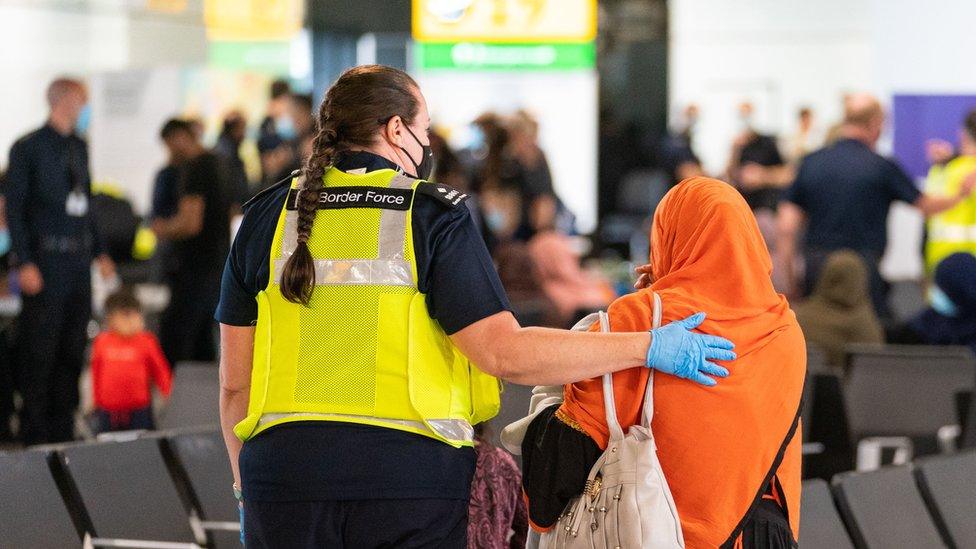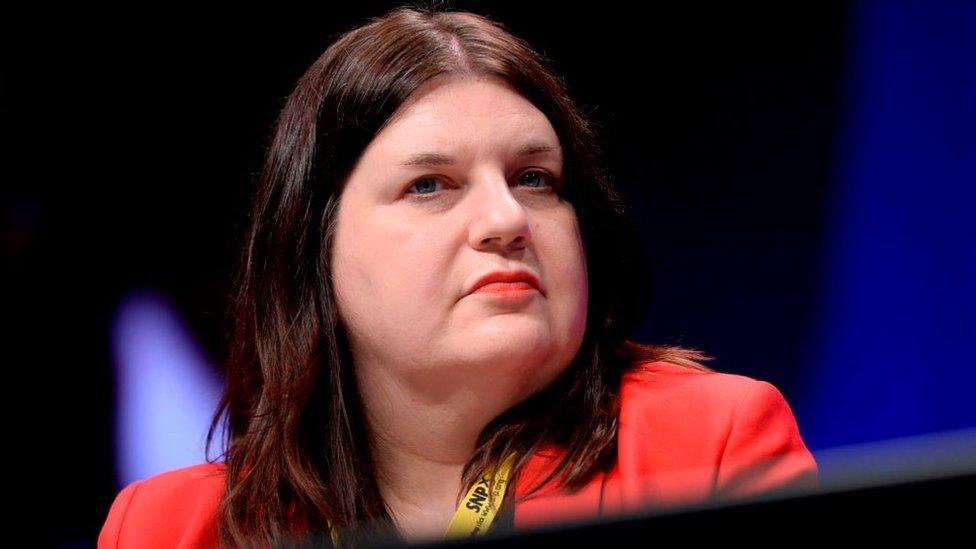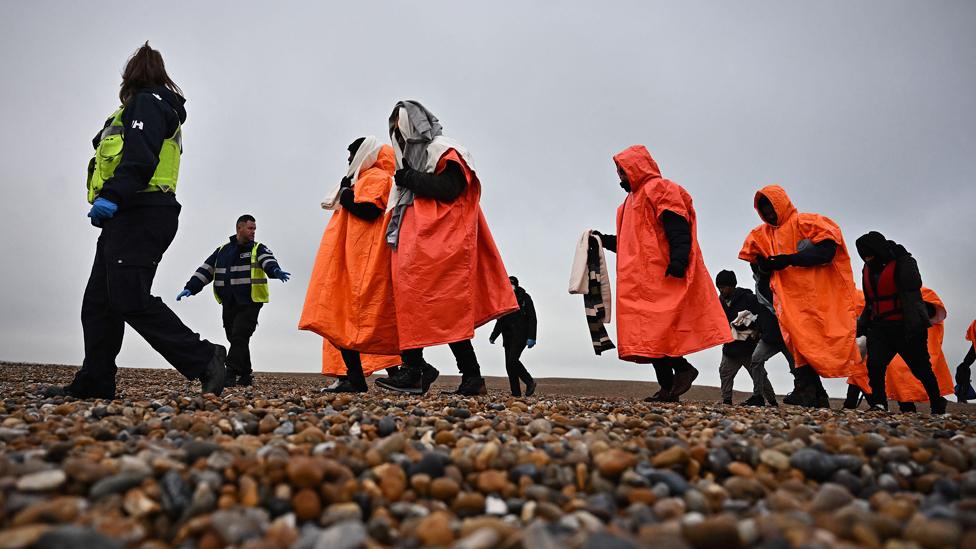Homelessness warning over Glasgow asylum seeker claims
- Published

The UK government has promised to cut the backlog in asylum applications
Scotland's largest city has warned it faces an "unprecedented" rise in homelessness applications as the Home Office tries to clear a backlog of asylum claims.
Glasgow City Council says it could result in 1,400 successful applicants who need help with housing this year.
Modelling suggests the council would need to find another 1,100 properties and face an extra £27m in costs.
The UK government has not pledged additional funding for councils.
The Home Office said action on backlogs was necessary to relieve pressure on the asylum system and that "ample support" was offered to those who made successful applications.
Last December, Prime Minister Rishi Sunak set a target of clearing the so-called legacy backlog in unprocessed asylum claims by the end of this year.
As part of that drive, the Home Office announced a "streamlined" process to help clear a record backlog of people awaiting an initial decision.
Applicants from Afghanistan, Eritrea, Libya, Syria and Yemen who applied before July last year will be considered for refugee status without a face-to-face interview.
Glasgow City Council now expects about 2,500 asylum claims to be processed in Glasgow before the end of the year - with about 1,800 likely to be successful.
Officials believe that a majority of these - about 1,400 individuals - will need help with housing.
'Unplanned and ill-conceived'
Susanne Millar, of Glasgow's Health and Social Care Partnership, said this could put "significant pressure" on the housing system, where there is already a 1,600 shortfall in available properties.
She told an emergency meeting: "When we tried to model what we would need in relation to permanent accommodation for that population, it resulted in an additional 1,100 lets from our [registered social landlord] partners."
She also warned of a risk of rising destitution and rough sleeping in the city, as well as increased use of emergency bed-and-breakfast accommodation.
Overall, the additional housing required is predicted to cost an extra £27m by December, rising to more than £53m by the end of the financial year.
During the meeting on Thursday, councillors claimed Glasgow had been "abandoned" and that the housing shortfall was leading to a "humanitarian crisis".
It comes four months after authorities announced spending reductions in homelessness services. because of budget pressures.
Ms Millar said there were similar pressures in other cities and regions across the UK as a result of a lack of additional funding from government.

Glasgow City Council leader Susan Aitken said the drive to cut the backlog in claims could lead to "unmanageable pressures"
Susan Aitken, leader of Glasgow City Council, said the move would be "devastating for refugees and cities across the UK".
"For Glasgow, a sudden cost of around £50m is simply unmanageable and the suffering caused to thousands of people who will suddenly be pushed into destitution is simply unimaginable," she said.
"I want to see people humanely treated by the asylum system. Refugees and immigrants have enriched Glasgow's culture for centuries and I am so proud that people want to make their home here.
"But this unstructured, unplanned and ill-conceived action will cause massive harm to people and to institutions across the country."
Ms Aitken called on additional financial resources to manage the increase.
The Home Office said it needed to speed up processing times in order to relieve pressure on the asylum system and cuts costs for taxpayers.
'Ample support'
A spokesperson said: "To minimise the risk of homelessness, we encourage individuals to make their onward plans as soon as possible after receiving their decision, whether that is leaving the UK following a refusal, or taking steps to integrate in the UK following a grant.
"We offer ample support once claims have been granted through Migrant Help, access to the labour market and advice on applying for Universal Credit."
If a person is granted leave to remain in the UK, they are given 28 days to leave accommodation provided by Mears, a contractor which provides asylum seekers support services to the Home Office.
They can then apply to the local authority for housing under homelessness legislation.
Glasgow is the second Scottish council this week to express concerns about the impact clearing the asylum backlog is having on social housing.
On Monday, Dumfries and Galloway Council leader Gail Macgregor agreed to write to UK Home Secretary Suella Braverman, external about the local authority's lack of resources to deal with supporting hundreds of asylum seekers looking for housing.
Related topics
- Published23 February 2023

- Published24 August 2023
